- Home
- Matt Rogers
The King_A Black Force Thriller Page 2
The King_A Black Force Thriller Read online
Page 2
‘I didn’t need the lecture.’
‘I think you did. I think you’re getting agitated.’
‘I’m in Northern Mali, or Awazad, or whatever the fuck it’s called. I’ve killed eight people since I got here. All of them tried to murder me, kidnap me, rob me, or rape me, for no apparent reason. Excuse me for being a little agitated.’
A long, uncomfortable pause. ‘Eight people?’
‘Bandits. Rebels. Thugs. Whoever they are. They’re all the same. They’re running rampant around the country because of the coup.’
‘I knew they were around. I didn’t know you’d adopted such a … hard nosed approach.’
‘You got a problem with that, too?’
‘What you do on the operations is at your own discretion. I’m not here to interfere with that.’
‘Spare me. You’ve clearly got a problem with it.’
‘We’re trying to be discreet here.’
‘For what? If I don’t know the details, then I can’t know how to respond to confrontation, can I?’
Lars said nothing. King had him in an awkward trap.
‘You’re in position?’ Lars said, steering conversation back to the task at hand.
‘Prick,’ King muttered under his breath. ‘Yeah. I’m in position.’
‘What do you see?’
Good question. King had barely paid the view any attention — the cluster of buildings blended into its surroundings, the brick faded, every square inch of the dwellings covered in dust. Wind from the plains had blown sand and dirt and muck over the structures, draping them in an ochre hue, making them look like boulders amidst the desert hillocks. The perimeter fence might have achieved some kind of security a decade ago, but now it slumped pathetically in disrepair, the metal rusted and the gouges in the mesh severe. King had pulled up in front of a man-sized hole in the fence line, pressing himself into the sand between two skeletal bushes wedged into the desert floor. He was all but invisible to someone standing ten feet away, let alone the occupants of the encampment.
‘Not much,’ he admitted. ‘No signs of movement. No perimeter guards. Nothing.’
‘Interesting.’
‘You said there were six hostages?’
‘You know this, King.’
‘I know what you’ve fed me. Which sounds like bullshit. Because there’s nobody home.’
‘There’s people home.’
‘You sure about that?’
‘Positive. The satellite feeds tell us that much.’
‘I don’t know…’
Then a man appeared. He sauntered out from underneath the traditional sandstone portico of one of the buildings, smoking a cigarette he’d rolled himself. He took three long inhales of the tobacco, flicked the half-finished butt into the sand, and ducked straight back indoors.
‘Got one,’ King said. ‘Young guy. Seemed like he was in his twenties. Turban, traditional clothing.’
‘Armed?’
‘He had a rifle on his hip.’
‘Make?’
‘What do you think?’
Out here, Kalashnikov AK-47s were more common than clean drinking water.
‘Nothing you can’t handle?’ Lars said.
‘You said you don’t know how many there are.’
‘We’re not sure.’
‘For an elite government division, you sure are shit at gathering data.’
‘I’d like to see you do my job.’
‘I’d give it my best shot. Beats crawling around out here in the desert.’
‘You’re full of quips lately, aren’t you?’
King’s face turned to stone. ‘I could just stop talking. That’d drive you insane, wouldn’t it?’
‘What’s gnawing at you?’ Lars said. ‘Besides the limited intelligence.’
‘Nothing.’
‘It’s not nothing.’
‘Lars…’
‘For once, shut up and listen to me. I know it’s not nothing. We’ve been working together for five years. I know when something’s eating you alive. I probably know you better than you know yourself. What the hell is wrong with you lately?’
King grimaced, pressed two fingers into his eyeballs to ride out an uncomfortable headache, and then dropped his forehead to the baking hot sand. He dealt with the burning against his skin until he grew accustomed to it, and then let out a groan.
‘I’m going mad out here, Lars.’
‘Why?’
‘Why the fuck did you send me to Mali in the middle of a coup?’
‘I didn’t choose the political climate. This situation cropped up, and you had to act whether you wanted to or not. What’s the rebellion got to do with it?’
‘You know what I’m like.’
‘Ah.’
‘You got it.’
‘I thought we’d successfully dealt with this.’
‘It’s not something you can just get rid of.’
‘I thought we suppressed it.’
‘Yeah, well, it’s coming to the surface.’
‘You can’t save everyone, King.’
‘All the shit I’m seeing makes me want to try.’
‘Talk to me,’ Lars said.
So he did.
4
He spoke of the horrors he’d witnessed, the stories he’d heard, the ordinary people he’d met over the course of the three days he’d spent hiking through the war-torn country who didn’t deserve the situation they were in. On all sides they were threatened, by regional Islamic groups and rebels and bandits and militias and the general scum of the earth. And the scum that populated this country made up a tiny percentage of the population, a population of primarily kind-hearted people that King had come to love, despite the language barrier, despite the lack of communication.
Because they were kind in the face of something truly horrific.
And right now, there were effectively no laws in this country.
And that scared the shit out of him.
Not for himself.
For the people who couldn’t defend themselves the way he could.
‘I have the fastest reaction speed on earth, right?’ King said. ‘That’s what the tests say. I beat all other Black Force operatives in that category. And I’m here to rescue six Americans and get out. What about everyone else? It fucks with me, Lars. I can’t say it doesn’t.’
‘You’re independently contracted to the U.S. government, and that binds you to what we tell you to do,’ Lars said. ‘End of story. And unless it concerns us, we can’t let you go on a vigilante crusade through Africa, as much as it might seem like the right thing to do.’
‘Why can’t you leave me here for a few weeks? Let me loose. Let me off the chain. Just this once.’
‘We’ve never done that.’
‘I know. But—’
‘There are no buts. If we let you off the leash, you’ll never come back.’
‘Bullshit.’
‘As much as you might not want to admit it, I know people. That’s my job. Psychological profiling. Studying the human psyche. Understanding why people do what they do. Because this is one of the most volatile careers on the goddamn planet, and I need to know how to deal with operatives who fly off the handle. Like you’re threatening to do right now.’
‘That’s not what I’m doing.’
‘That’s exactly what you’re doing. If you walk away from this operation you won’t be a part of Black Force any longer.’
‘And then what happens?’
‘You don’t want to know what happens.’
‘Let’s get one thing straight,’ King said. ‘Enough with the power games. It’s all bullshit. I don’t want the problem of having to deal with my own government coming after me, and you don’t want to have to deal with the problem of putting someone like me away. Can we both agree on that?’
A pause, and then Lars said, ‘I’ll accept that.’
‘I’ll do this job. But I have nothing to work with. I’m letting you know I don’t
like it. I want more information in future.’
‘Sometimes this is all the information we can get.’
‘Once again, Lars, you’re full of shit. You know more about this. You say you know me. Well, I know you.’
Double-tap.
Lars was one word into his response when King ended the call.
He soaked in the silence of the desert, listening to the sheer deadness of the region. A strange reality settled over him — the knowledge that everyone in a ten mile radius would probably try to kill him at first sight. Throughout his career, King had visited some of the most brutal, inhospitable destinations on the planet. They all paled in comparison to Northern Mali in the midst of a coup. He’d done little research into the specifics of the rebellion, but the country was effectively tearing itself apart. This time it was literal, not just a loosely governed swathe of land as King had experienced in Somalia and the Congo during the foundations of his career.
No, this…
This was something chaotic.
Something mad.
He rolled onto his back and stared up at the darkening sky as dusk fell over the plains. Exhaustion swamped him — not from the hike, but from the three separate instances over the last few days in which he’d needed to activate his fast-twitch muscles fibres. He’d demolished the four armed bandits earlier that morning without taking a scratch, but the havoc the altercation had wreaked on his nervous system wasn’t something he could recover from in a heartbeat. He would sleep well tonight.
Two days.
That’s what Lars had said.
But why?
None of it made sense. Lars’ explanation hadn’t eased King’s mind in the slightest. No part of him wanted to wait to take care of this, especially considering how close he was to the complex. The gaps in security were a mile wide, and he didn’t want to wait around for them to be rectified for no particular reason. He was sure there was a purpose for stalling, but the fact that Lars refused to tell him drove him mad.
He lay silently on his back as night fell, taking another swig from the water container. The electrolytes had an acrid tang to them, but he knew they were doing him good. He closed his eyes, slept for twenty minutes, and awoke with a restless sensation in the pit of his gut.
He knew what it meant.
He had a choice to make.
There was no use staying here. If Lars wanted him to lie low, he would need to retreat a mile or so away from the compound and bide his time. But regardless of the vagueness, there were American aid workers in danger only a hundred feet from his current position. He tried to put himself in their shoes, picturing their horror as the country fell apart around them. The president had been thrown out of office, the laws had been abandoned, and madness had descended over the northern region as infighting broke out.
And in the middle of it were six humanitarian aid workers doing their best to help the struggling villages.
It made King’s blood boil, and he rolled over and punched the earth, silently gouging a crater out of the sand.
Two days wouldn’t cut it.
Not with the risks the hostages were facing.
So, even though he’d never disobeyed a direct order in his life, Jason King did something incomprehensible.
He stood up and abandoned protocol.
5
Black Force didn’t distribute orders often, and when they did they were unquestionable.
So the simple fact that King had decided to go against his handler’s instructions would send ripples through the covert world.
He knew that. And he didn’t care. He valued the safety of innocent people caught in the wrong place at the wrong time over the preferences of faceless men in suits sitting behind their desks in Washington. There were obviously reasons for the delay — whether that was because of political timing or something more important, King didn’t know. But if Lars wasn’t willing to provide him with all the details, then he would have to act on his better judgment.
And judgment told him to move.
It could get him killed. There were no games in black operations, no room for rogue operatives.
But he had leverage.
He was their best. He knew that without a shadow of a doubt. There was nothing cocky about it — the data told him he was. Lars said it time and time again. King’s reaction speed rested a cut above the rest, and in the world of violent confrontation that meant everything. His track record showed it.
So he didn’t think this particular breach of protocol would put his head on the chopping block.
He might get lectured and punished.
He could deal with that.
Out of the hiking pack came a Glock 17 with an attached suppressor, King’s weapon of choice for what would follow. He’d been given the option to arm himself with almost anything he could comfortably carry across Northern Mali, but he’d never seen the use in lugging a fully automatic rifle around with him. A Glock in the right hands was quieter, more accurate, and more disorientating to the enemy. Slipping through the cracks in the barricades and tearing a hostile force apart from the insides proved far more effective than charging in with guns blazing, unloading unsuppressed rifle rounds into a situation with innocent hostages in the mix.
So he left the pack where it was and slipped through the jagged gap in the compound’s fence, his senses wired to the slightest disturbance. Dusk continued to fall as he crept across the open ground, training the Glock’s barrel on the entranceway to the nearest building. Shrouded in ever-increasing amounts of shadow, he locked his focus onto the structure. It was a long, low, sandstone cube, somewhere between a house and a communal building. King wondered if the buildings had designated purposes or if the entire compound had been abandoned long ago, seized by this regional Islamist group as a base of operations.
Whatever.
It didn’t matter.
What mattered was the guy who stepped out into the lowlight, a cigarette glowing between his lips, illuminating the sliver of skin between the turban on his head and the bandana around his neck. The face was dark and brooding. As soon as King sensed movement he froze up, still as a statue, nothing but a hulking shadow in the sand. The scout locked eyes with the shadow, and hesitated, looking twice, making sure he wasn’t hallucinating.
That was what killed him.
King fired once and the Glock coughed, punching a round through the darkness. The turban jerked back, blood sprayed from the exit wound, and the guy went down in the sand.
King ran.
He kicked up sand as he charged, bursting off the mark like a sprinter coming out of the blocks, the illusion of stealth shattered. Despite what’s considered fact in popular culture, a silencer never fully suppresses a gunshot. It downgrades a giant bang to a sharp, vicious punch. That same punch was unmistakable in the silence of the desert. He’d been hoping to be closer before he let off the first shot, but nothing was guaranteed in this occupation.
He made it to the open entranceway and lurched into the cover of the nearby wall, pressing his back against the sandstone. He took a deep breath and held it, then listened for any sign of activity.
Right there.
Footsteps thundering toward him.
Someone was set to burst out through the entranceway in a couple of seconds.
They would see their fallen comrade, and then all hell would break loose.
No, not someone. Two people.
King raised the Glock in the semi-darkness, locking the silencer onto the dead space in front of the arch. A body came through a moment later, and King fired.
Death was instantaneous.
The second terrorist froze on the spot and keeled forward, a small piece of lead embedded in his brain, and King caught the body and lowered it gently to the sand alongside his friend.
Completing both actions in a fluid sequence, he lowered himself into a crouch at the same time and swung the Glock around to lock onto the third man. The guy had made it halfway through the entranceway before the
sight of his dying comrade had shocked him into hesitation. He was in the process of raising a bulky Kalashnikov, moving fast as hell, his muscle fibres firing on all cylinders.
Nowhere near as fast as King.
King pumped the trigger once and the guy face-planted the dusty concrete around the entranceway’s threshold, missing an eye.
So far, so good.
No-one had uttered a sound, not even in their death throes.
Mostly because there were no throes to be had.
Each shot King had fired had killed his targets in a heartbeat, leaving them no chance to call for help. Anyone listening would have heard muffled coughs, followed by intermittent thumps as bodies hit the floor. All the silent adrenalin leached out into the atmosphere, supercharging it, the chaos flooding King’s veins.
He could barely contain himself.
He checked there were no malfunctions with the Glock, mentally noted the thirteen remaining rounds in the clip, and melted into the darkness, powering into the building with tunnel vision and an itchy trigger finger.
6
He followed the light.
The space he entered lay shrouded in darkness, its contents barely illuminated by the weak light filtering in through the entranceway. Soon dusk would give way to night, and King would be blind. He had a small tactical torch attached to the under barrel of the Glock, but he figured it would be madness to use it now. He’d considered night-vision goggles, but they’d prove cumbersome if he found himself in a close-range brawl.
Something he considered himself adept at.
So he kept stalking through the dark, figuring that if he’d eliminated the three occupants of this building his cover would still be intact. He noticed a soft glow emanating from a doorway on the other side of the large concrete space, and he moved toward it, keeping low. He heard something. A whimper. Muffled.

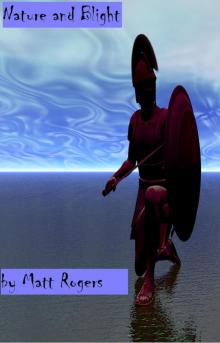 Nature and Blight
Nature and Blight The Wolves of Third Clan
The Wolves of Third Clan Ghosts
Ghosts Bear
Bear The Will Slater Series Books 1-3
The Will Slater Series Books 1-3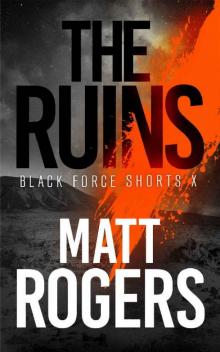 The Ruins
The Ruins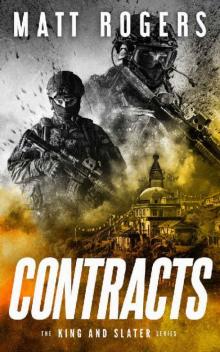 Contracts
Contracts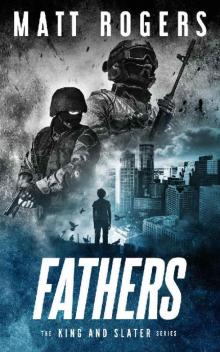 Fathers
Fathers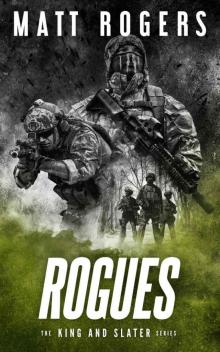 Rogues: A King & Slater Thriller
Rogues: A King & Slater Thriller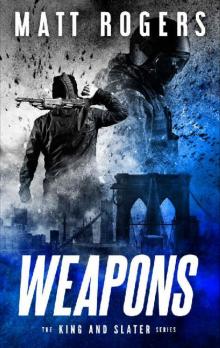 Weapons
Weapons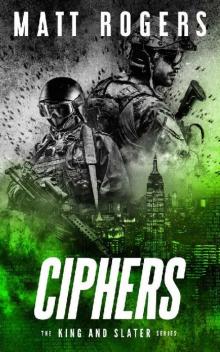 Ciphers
Ciphers Lynx
Lynx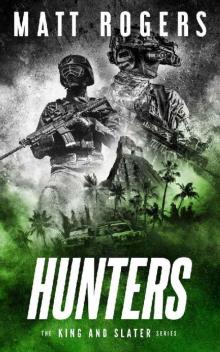 Hunters
Hunters Of Superior Design
Of Superior Design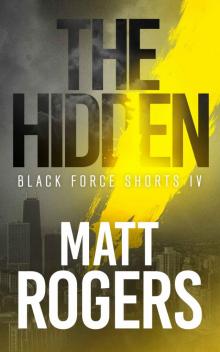 The Hidden: A Black Force Thriller (Black Force Shorts Book 4)
The Hidden: A Black Force Thriller (Black Force Shorts Book 4) Blood Money
Blood Money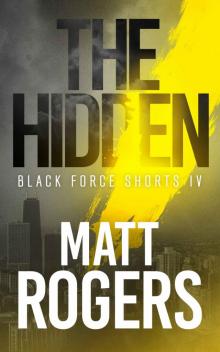 The Hidden_A Black Force Thriller
The Hidden_A Black Force Thriller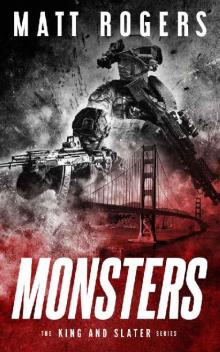 Monsters
Monsters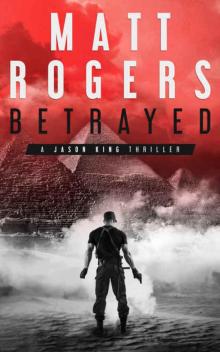 Betrayed: A Jason King Thriller (Jason King Series Book 4)
Betrayed: A Jason King Thriller (Jason King Series Book 4)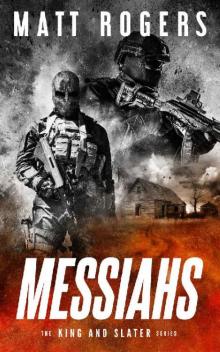 Messiahs
Messiahs The Wicked_A Black Force Thriller
The Wicked_A Black Force Thriller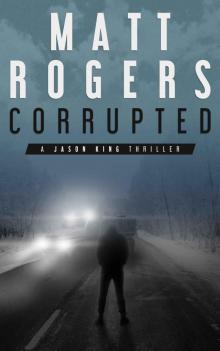 Corrupted: A Jason King Thriller (Jason King Series Book 5)
Corrupted: A Jason King Thriller (Jason King Series Book 5)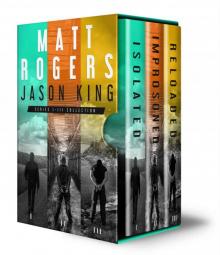 The Jason King Series: Books 1-3
The Jason King Series: Books 1-3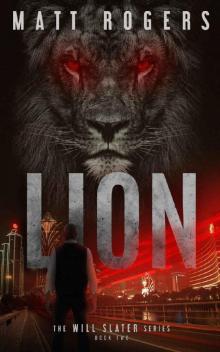 Lion
Lion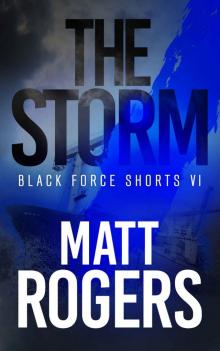 The Storm: A Black Force Thriller (Black Force Shorts Book 6)
The Storm: A Black Force Thriller (Black Force Shorts Book 6)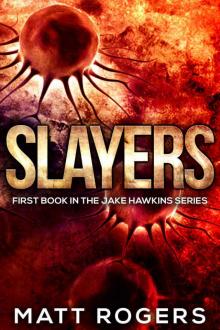 Slayers (Jake Hawkins Book 1)
Slayers (Jake Hawkins Book 1)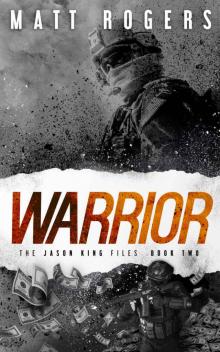 Warrior: A Jason King Thriller (The Jason King Files Book 2)
Warrior: A Jason King Thriller (The Jason King Files Book 2)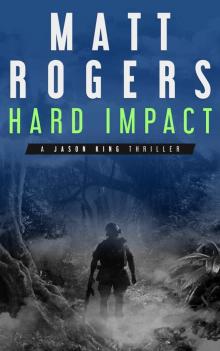 Hard Impact: A Jason King Operation (Jason King Series Book 0)
Hard Impact: A Jason King Operation (Jason King Series Book 0) The Wicked: A Black Force Thriller (Black Force Shorts Book 7)
The Wicked: A Black Force Thriller (Black Force Shorts Book 7)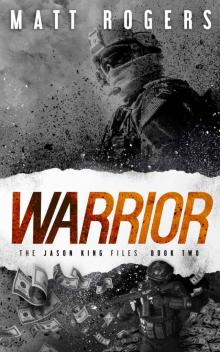 Warrior_A Jason King Thriller
Warrior_A Jason King Thriller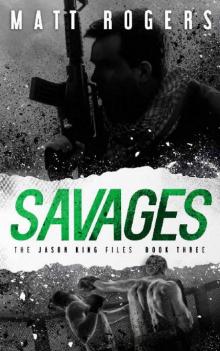 Savages: A Jason King Thriller (The Jason King Files Book 3)
Savages: A Jason King Thriller (The Jason King Files Book 3)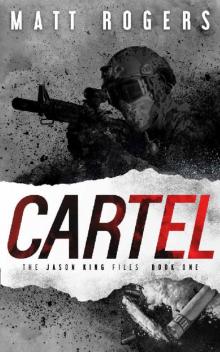 Cartel: A Jason King Thriller (The Jason King Files Book 1)
Cartel: A Jason King Thriller (The Jason King Files Book 1)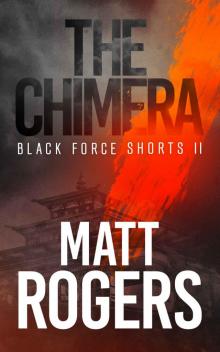 The Chimera_A Black Force Thriller
The Chimera_A Black Force Thriller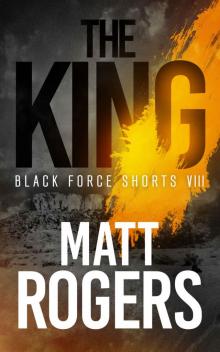 The King: A Black Force Thriller (Black Force Shorts Book 8)
The King: A Black Force Thriller (Black Force Shorts Book 8)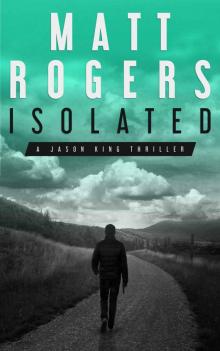 Isolated: A Jason King Thriller (Jason King Series Book 1)
Isolated: A Jason King Thriller (Jason King Series Book 1) The Victor: A Black Force Thriller (Black Force Shorts Book 1)
The Victor: A Black Force Thriller (Black Force Shorts Book 1)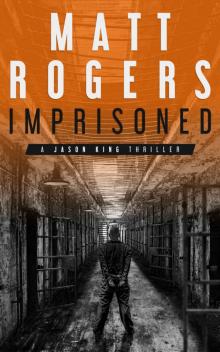 Imprisoned: A Jason King Thriller (Jason King Series Book 2)
Imprisoned: A Jason King Thriller (Jason King Series Book 2)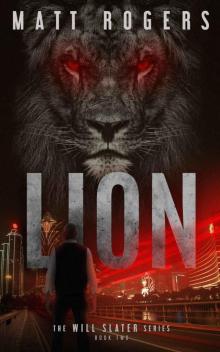 Lion: A Will Slater Thriller (Will Slater Series Book 2)
Lion: A Will Slater Thriller (Will Slater Series Book 2)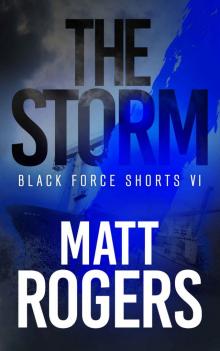 The Storm_A Black Force Thriller
The Storm_A Black Force Thriller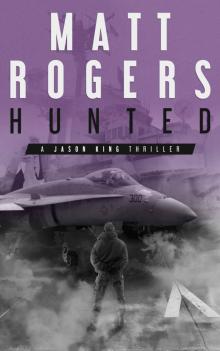 Hunted: A Jason King Thriller (Jason King Series Book 6)
Hunted: A Jason King Thriller (Jason King Series Book 6)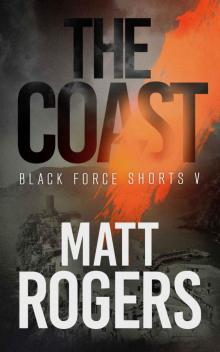 The Coast: A Black Force Thriller (Black Force Shorts Book 5)
The Coast: A Black Force Thriller (Black Force Shorts Book 5)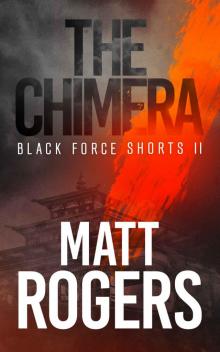 The Chimera: A Black Force Thriller (Black Force Shorts Book 2)
The Chimera: A Black Force Thriller (Black Force Shorts Book 2)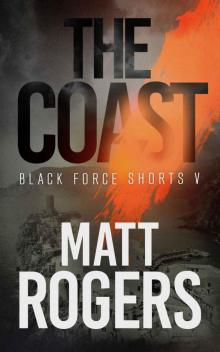 The Coast_A Black Force Thriller
The Coast_A Black Force Thriller